Search Results
Showing results 121 to 140 of 281
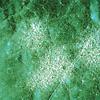
Powdery Mildew Fungi: Classification and Ecology
Source Institutions
In this laboratory exercise, learners will discover how many different plant hosts they can find that are infected by the same genus of a powdery mildew fungus, or how many different genera of powdery
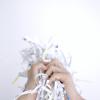
Recycling Paper
Source Institutions
In this crafty chemistry activity (on page 2 of the PDF), learners make their own paper from used paper they may have otherwise thrown away.
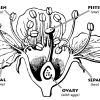
In Search of Pollen
Source Institutions
In this activity (on pages 9-14), learners dissect a real flower -- the kind of work botanists do.
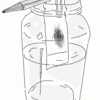
Show Your Colors!
Source Institutions
In this family or group activity, learners conduct a chromatography experiment to reveal the colors that leaves "hide" under their green pigments.
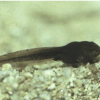
Life Story
Source Institutions
In this two-part activity, learners compare and contrast a variety of life cycles to better understand different organisms and how they develop.
Tree Poker
Source Institutions
In this activity (p.14-15 of PDF), learners discover the concepts of competition and limiting factors as they relate to plant and animal communities.

Exploring Fabrication: Self-Assembly
Source Institutions
In this activity, learners participate in several full-body interactive games to model the process of self-assembly in nature and nanotechnology.
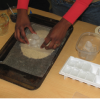
Ice on Mars
Source Institutions
In this activity, learners use sand and ice cubes to create a model of permafrost and the effects of the ice melting through the surface.
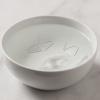
Water Bugs
Source Institutions
Some bugs can walk on the surface of a lake, stream, river, pond or ocean.
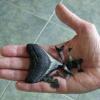
Chomp
Source Institutions
In this activity (page 5 of pdf), learners explore the relationships between the shape and structure of a shark's teeth and the food it eats, and then create their own shark tooth from clay.
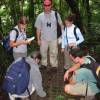
Creating a Local Field Guide
Source Institutions
In this activity, learners survey living organisms near where they live or go to school, and create a local field guide.
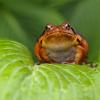
Soak It Up: Understanding Amphibian Permeability
Source Institutions
In this activity, learners will discover how the thin layers of amphibians' skin allow water and other chemicals to pass through it.
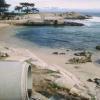
What is in the Water?
Source Institutions
In this activity, learners use open inquiry to learn about the process of science as well as gain experience regarding the Law of Conservation of Mass, dissolution, and density.
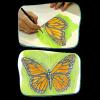
Draw a Monarch Butterfly: Scientific Illustration
Source Institutions
Ivy Rutzky, a scientific assistant at the American Museum of Natural History, introduces an activity where learners create a scientific illustration of a monarch butterfly.
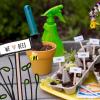
Egg Carton Nursery
Source Institutions
In this activity, young learners will make their own flower seed nursery in an egg carton.

The Old White Sheet Trick: Light and Insect Behavior
Source Institutions
In this outdoor, nighttime activity, learners gather around a brightly lit, white surface and study the behavior of nocturnal animals attracted to the light, particularly night fliers.
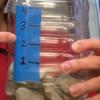
Homemade Rain Gauge
Source Institutions
In this activity, learners will build rainwater collectors to practice meteorology in their own backyard. Collect and analyze data to determine how much rainfall you get in a set period of time.
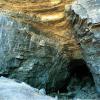
Soda Pop Cave
Source Institutions
In this geology activity (page 6 of the PDF), learners explore how carbonic acid can slowly dissolve limestone and form caves.
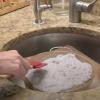
Papermaking at Home
Source Institutions
Learners will follow a specific process to make their own paper using scrap paper, newspaper, or junk mail.
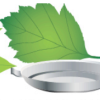
Paper Chromatography with Leaves
Source Institutions
In this activity on page 5 of the PDF (Plants—The Green Machines), learners use chromatography to separate and identify pigments within various leaves.
